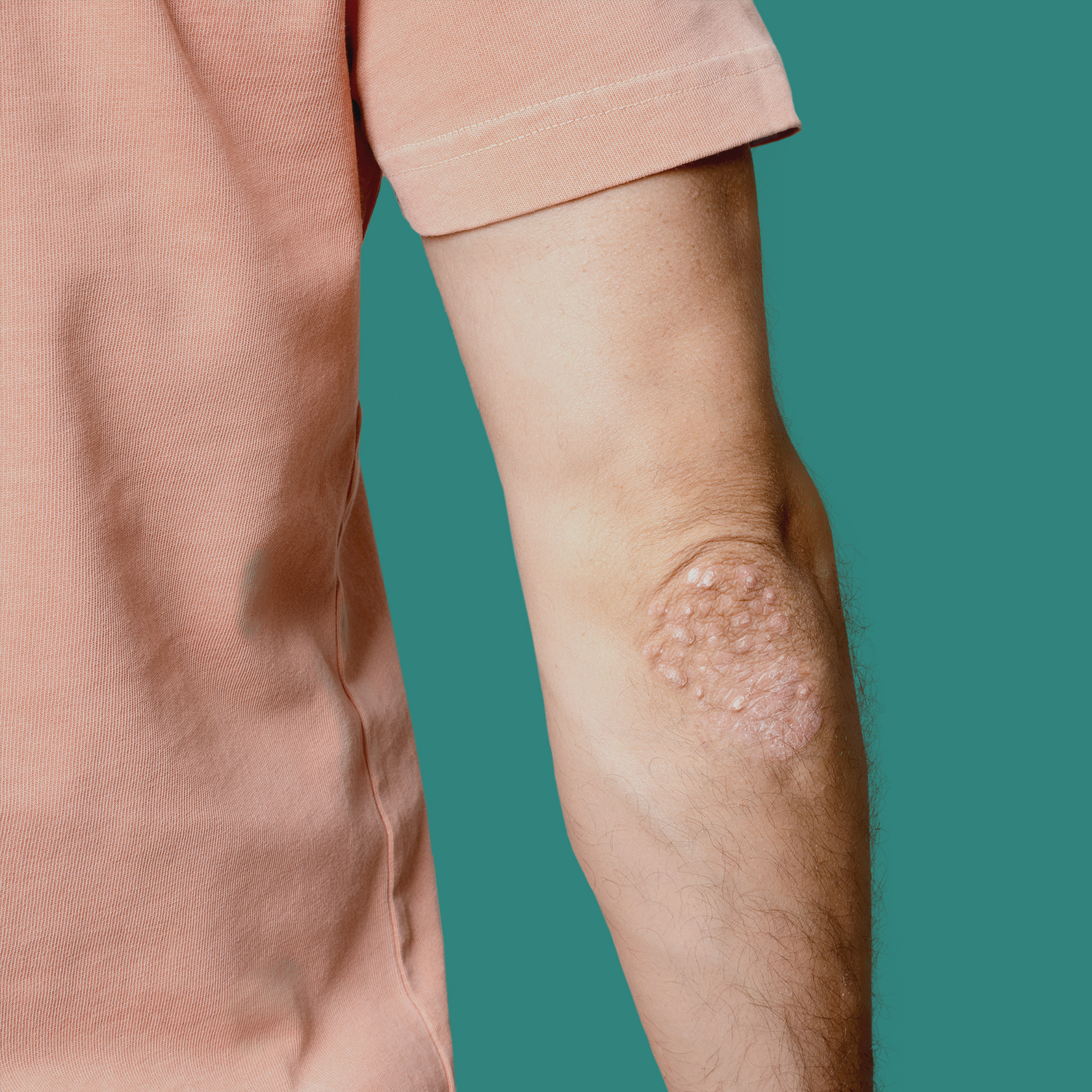Yes, Seasonal Psoriasis Is Very Real
Skin Symptoms & Concerns
Yes, Seasonal Psoriasis Is Very Real

You’ve made it through the winter without a single psoriasis symptom. You start to think that maybe you’re finally in the clear and can stop letting your skin condition call the shots on all of your plans and decisions.
But, as soon as there’s even an ounce of humidity and a hint of warmth in the air, you notice that those dreaded red and scaly patches start to appear like clockwork.
What’s going on here? Are you just unlucky or can psoriasis be worse in certain seasons?
Can psoriasis be seasonal?
Psoriasis itself is a chronic autoimmune disorder—which means you could find yourself dealing with the itching, burning, and discomfort any time of the year.
But, there can be a seasonal element to psoriasis too. For some people, the weather can trigger a psoriasis flare-up. You might hear people refer to it as “seasonal psoriasis,” because psoriasis symptoms show up during specific times of the year.
What time of year is the worst for psoriasis?
With that in mind, when can you expect your psoriasis symptoms to swoop in with a vengeance? Well, it depends.
In general, many people find that their psoriasis is worse in the winter. The National Psoriasis Foundation even lists cold weather as a common trigger of psoriasis, as the drier air and less exposure to sunlight can cause flare-ups.
Similarly, a lot of people discover that their psoriasis is far easier to manage in the summer, as the humidity and ultraviolet light from the sun help to keep symptoms to a minimum—or even kick them to the curb entirely. Some doctors even use light therapy (where the skin is exposed to a controlled amount of ultraviolet light) year-round to help people manage their psoriasis symptoms.
Does that mean something is wrong with you if you notice that your psoriasis is way worse in the summer, despite all of the sunny weather? Not at all. Some people find that the steamier weather and especially sunburn will trigger psoriasis flare-ups. Excessive sweating can also make certain types of psoriasis even worse.
So, there isn’t a one-size-fits-all answer for what season is the worst for psoriasis—it can be different for everybody.
How do I prevent seasonal psoriasis?
There isn’t a cure or foolproof prevention for psoriasis (sorry, we wish there was).
But, once you know what season or type of weather tends to trigger your flare-ups—whether that’s bitter cold or sticky heat—there are a few steps you can take to hopefully keep your symptoms to a minimum.
If cold weather triggers your psoriasis…
- Take short, warm showers or baths (rather than piping hot) to avoid drying out your skin even more
- Apply a moisturizer several times throughout the day (and especially after showering) to keep your skin hydrated
- Use a humidifier to add some moisture back into your home, especially in the room where you sleep
And as Facet Medical Director, Dr. Peter Young, recommends, “Try a mild, unscented skin cleanser instead of bar soap.”
If hot weather triggers your psoriasis…
- Use sunscreen regularly to prevent sunburn because injury to the skin is another common psoriasis trigger.
- Take a warm (again, not hot) shower or bath after sweating, as the salt and acidity of your own sweat can dry out your skin. Use a mild unscented and hypoallergenic liquid cleanser instead of bar soap.
- Apply a moisturizer after showering and regularly throughout the day—moisture is important for managing psoriasis, regardless of the weather.
- Wear light, loose-fitting, cotton clothing.
How do I treat a psoriasis flare-up quickly?
When you’ve tried to be as careful as possible about getting ahead of your seasonal psoriasis, it’s super disheartening when you see those red, rough, and scaly patches start to show up on your skin anyway.
You’re tired of tugging your sleeves down to your knuckles (despite the fact that it’s 80 degrees outside) or refusing to take off your winter hat (even indoors) so you can try your best to hide your flare-ups.
There isn’t a cure for psoriasis, but there are several treatment options that can help you manage your symptoms. Generally, these are broken into two categories:
- Topical solutions: These ointments, creams, gels, sprays, foams, shampoos, and other solutions are applied directly to the affected area of the skin. Topical corticosteroids are the most commonly-prescribed option for treating mild to moderate psoriasis.
- Oral or injected medications: These medications are either ingested or injected and are more commonly reserved for moderate to severe psoriasis.
Like we mentioned earlier, some doctors also recommend light therapy for severe cases of psoriasis, but that option comes with its own risks (as too much exposure to UV rays can be bad for the skin too).
Wondering if you can treat your seasonal psoriasis naturally? While you may have heard rumblings of the merits of apple cider vinegar or aloe vera, the National Psoriasis Foundation maintains that those home remedies are most effective when used alongside more traditional medications and treatments—so you probably don’t want to opt for the entirely natural route.
You can’t control the seasons, but you can prepare for them
For some people, the changing of the seasons represents a fresh start. But if you’re someone who struggles with seasonal psoriasis? Flipping the calendar pages can feel more like a countdown to your own misery.
While there’s no cure for psoriasis, understanding the condition and what weather tends to trigger your flare-ups can help you get ahead of your symptoms—and avoid letting them take over your life and self-esteem.
Article Reviewed By
Dr. Peter Young, MD, Facet Medical Director and Board-Certified Dermatologist
Skin conditions can make you feel invisible. We see you.
Let’s clear up your skin concerns together.